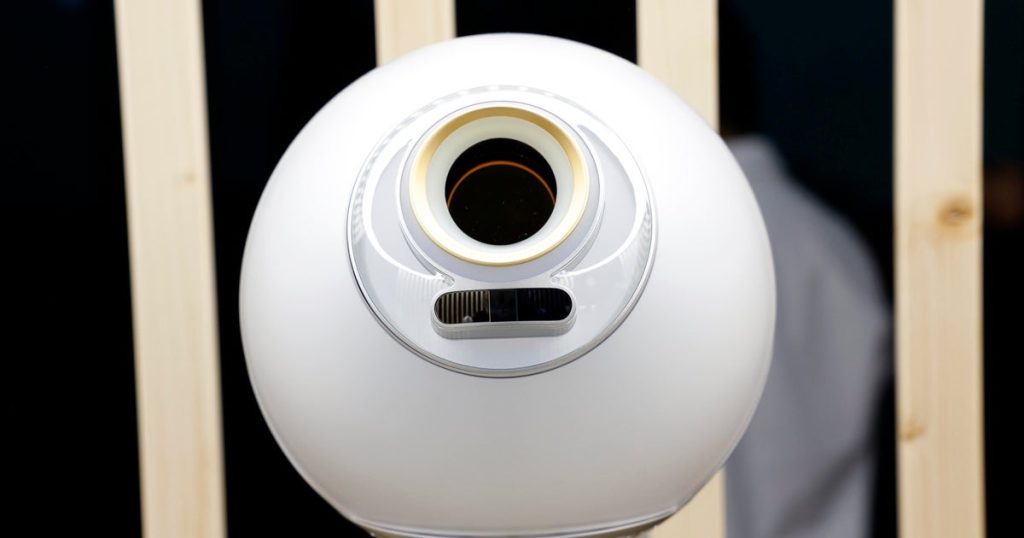In a world increasingly dominated by artificial intelligence and bots, proving individuality and humanity has become a pressing challenge. Sam Altman, CEO of OpenAI, aims to tackle this issue with a startup named World, which has developed a groundbreaking device that verifies human identity. Launching in the U.S. with 20,000 retina-scanning devices known as Orbs, World seeks to create a reliable digital identity that distinguishes real people from AI imitations.
| Article Subheadings |
|---|
| 1) World: A Modern Solution to Proving Humanity |
| 2) Understanding the Orb: Technology Behind the Innovation |
| 3) U.S. Rollout: Expanding Horizons |
| 4) Privacy Concerns and Regulatory Backlash |
| 5) The Future of Digital Identity |
World: A Modern Solution to Proving Humanity
The rise of artificial intelligence has led to a growing concern about the authenticity of online interactions. Who can truly verify that someone is human rather than a bot? This is where World enters the scene. Founded by Sam Altman, the architect behind ChatGPT, World is specifically designed to solve this dilemma. By providing a digital ID that confirms a person’s humanity, the startup seeks to bridge the gap between technology and identity verification. The goal is simple yet profound: to combat the proliferation of bots that impersonate real people across various platforms, from social media to financial services.
Understanding the Orb: Technology Behind the Innovation
At the heart of World’s initiative is the Orb, a compact device that scans the retina of users to confirm their human existence. But how does it actually work? The device takes images of the user’s retina to ensure they are indeed human, and this data is then securely stored on the user’s device, preserving privacy. The Orb does not hold any biometric data which mitigates potential privacy concerns surrounding the storage of such sensitive information. The objective is to balance technological advancement with user privacy, creating a streamlined way of validating identity without compromising personal data.
U.S. Rollout: Expanding Horizons
The U.S. launch of the Orb marks a pivotal moment in the evolution of digital identity verification. Announced plans indicate that 20,000 Orbs will be distributed across six major cities, including Austin, Atlanta, and Los Angeles. This initiative aims not only to verify individuals in physical locations but also to integrate this technology into a broader digital wallet ecosystem known as World App. This app will facilitate access to decentralized finance and cryptocurrencies, representing a significant leap forward in the merger of identity verification and financial services. As U.S. regulations surrounding cryptocurrency become more favorable, the timing of this rollout could position the U.S. as a leader in digital identity technology.
Privacy Concerns and Regulatory Backlash
Despite promising benefits, the World project has sparked considerable controversy. Following its international debut in 2023, several jurisdictions, including Kenya and Hong Kong, imposed restrictions or outright bans on its use due to concerns about privacy and data safety. Critics argue that the technology poses risks in terms of surveillance and data misuse, complicating the rollout. As indicated by Jake Brukhman, a co-founder of CoinFund and one of the project’s earliest backers, “There was a lot of noise about this,” referring to the misunderstanding surrounding the Orb’s technology. He emphasized that the device operates under a privacy-first model that does not retain biometric data, which aims to alleviate some of these concerns.
The Future of Digital Identity
Looking ahead, the implications of World’s technology extend into numerous sectors. As the digital landscape continues to evolve, establishing a reliable form of identity verification could revolutionize various fields, particularly finance and online services. The ability to differentiate between genuine users and bots can enhance security measures and ultimately lead to a more trustworthy online environment. Altman’s vision, as articulated by Brukhman, points toward a future where digital identity becomes an integral part of everyday transactions, further blurring the lines between technology and personal interaction.
| No. | Key Points |
|---|---|
| 1 | Sam Altman’s startup, World, aims to solve identity verification issues exacerbated by AI. |
| 2 | The Orb scans users’ retinas and provides a digital ID that confirms their humanity. |
| 3 | World plans to launch 20,000 Orbs in six major U.S. cities to widen access to its technology. |
| 4 | Privacy concerns have led to backlash and regulatory restrictions in several countries. |
| 5 | World’s technology could significantly impact the future of digital identity in various sectors. |
Summary
In summary, World represents a bold step into the future of digital identity verification, showcasing the intersection of technology and personal security. While challenges and concerns persist, particularly regarding privacy, the potential benefits of a reliable way to establish humanity in an increasingly automated world are significant. As the U.S. rollout gathers momentum, both the company and its adversaries will monitor its impact closely, shaping the dialogue surrounding digital identity and technology.
Frequently Asked Questions
Question: What is the primary function of World’s Orb?
The Orb is designed to scan a person’s retina to verify their humanity, providing a digital ID that distinguishes real individuals from bots or AI programs.
Question: In which cities will the Orbs be rolled out in the U.S.?
The Orbs will be distributed in six U.S. cities: Austin, Atlanta, Los Angeles, Nashville, Miami, and San Francisco.
Question: What privacy measures are in place with the use of the Orb?
The Orb does not store any biometric data; instead, it retains the verification information on the user’s personal device to enhance privacy.


